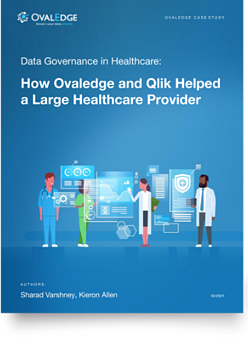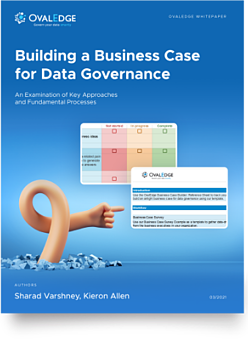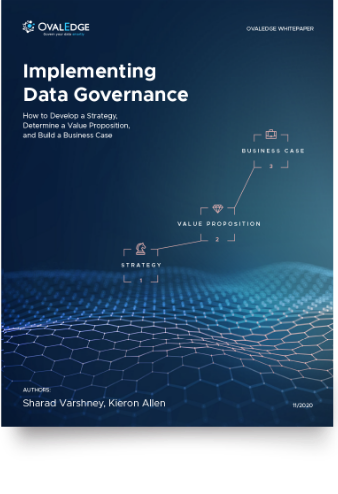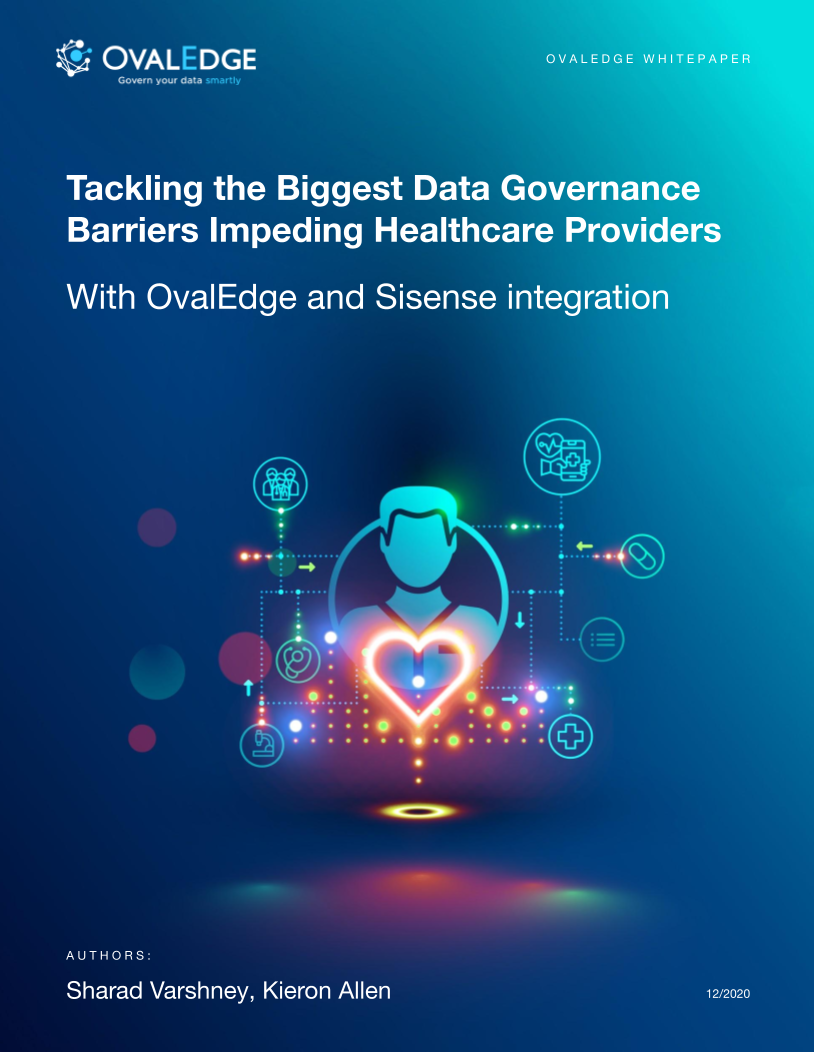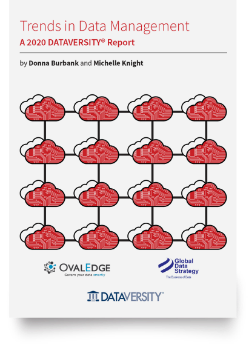Table of Contents
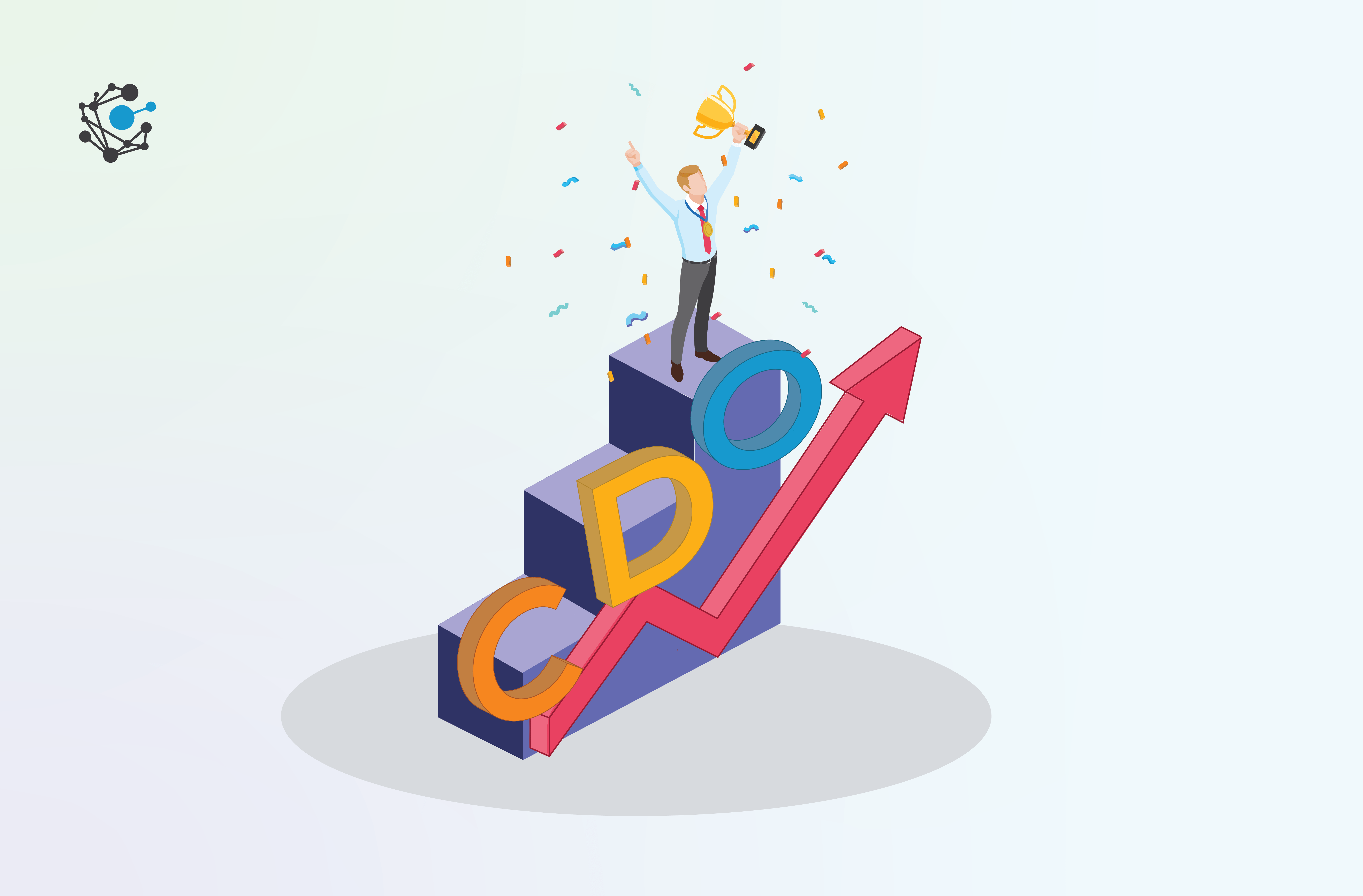
How to Become and Deliver as a Chief Data Officer
The role of the Chief Data Officer (CDO) is inextricably linked with data governance. Without experience managing data governance programs, candidates simply don't have the experience to oversee a company-wide data strategy.
In the same way a Chief Marketing Officer needs more than communications experience or a CEO must have touched every point in modern business during their career, to become a CDO, you can't simply have mastery of a single skill set. You must have mastered multiple aspects of data management and analytics, held leadership roles, and more to excel in the role.
Data governance plays a crucial part in quickly building data-focussed skill sets because it incorporates many different elements. The quickest path to becoming a CDO is running a data governance program.
In this blog, we'll explain exactly what a CDO is, what they do, the qualifications and experience you need to become one, and how data governance experience is the best way to expedite your journey to the C-suite.
Related Post: Learn how data governance touches every corner of a progressive data strategy
What is a Chief Data Officer (CDO)?
As the volume of data and complexity of data sources and systems increased, progressive organizations in every sector, from healthcare to finance, realized the importance of having a dedicated executive in the C-suite to oversee data-driven operations.
A 2015 study found that only 6% of organizations had a CDO. Still, fast forward to 2022, and a more recent paper concluded that 74% of organizations surveyed had a CDO, or Chief Analytics Officer, or both integrated into a single role.
Ultimately, a CDO is responsible for ensuring the company uses data technologies in the best way possible to achieve the overall business objectives. They are at the top of the ladder regarding governance and organization and, like the other members of the C-suite, are focused on company-wide goals.
While a CMO aims to achieve these goals through marketing strategy or a CFO through streamlined finance operations, a CDO uses data. To become a CDO is to reach the pinnacle of your industry. As such, the Chief Data Officer salary is often upwards of $300,000 in the US and Chief Data Officer jobs are highly competitive.
What does a CDO do?
A CDO must assume various roles and responsibilities in their position. Later in this blog, I'll explain how a CDO can excel, provide real value, and contribute to the ongoing success of their organization, but at this point, let's cover the core requirements.
A CDO is accountable for all of the enterprise data in the organization. To that end, they must oversee the responsible and accurate collection, management, and storage of this data.
They must work closely with other executives and the CEO to determine how data-driven innovation will align with the company's vision and develop a data-driven culture to achieve this goal.
CDOs must oversee the operationalization of data for collaborative projects and business insights, all the while ensuring data is standardized and, crucially, governed effectively. Like many others, this responsibility hinges on developing and implementing comprehensive data strategies.
Ofcourse, internal management of data teams and analysts is a core component of a CDO's job, but external communication is critical too. A CDO must confidently liaise with regulators, partners, and other stakeholders to achieve data-driven business goals within compliance frameworks.
CDOs manage the budgets required to roll out data technologies and related processes and ensure that data access, quality, and literacy policies are governed appropriately. Above all, CDOs must lead their organizations to champion data-driven decision-making, and in many ways, they lead digital transformation efforts in their company.
How to become a CDO?
There are various steps required to achieving the top data job in the C-suite. However, you can group the requirements for completing these steps into three areas: qualifications, experience, and key skills.
Qualifications
You must have a formal education to achieve the best Chief Data Officer roles. While an undergraduate degree in data science or business is good, an MBA or data-focused master's degree is favourable as it will make you stand out from many other competitors.
Beyond this, a good CDO will have other data-specific qualifications too, awarded by well-known industry leaders, such as Microsoft, SAS, or IBM. Furthermore, a CDO may be proficient in other related skills like programming, SQL, Predictive Analysis, Machine Learning (ML), and Artificial Intelligence (AI).
Experience
The role of the CDO requires a wide and varied skill set. However, specialisms aren't always a benefit. Even if you have a wealth of knowledge in data analytics and have worked with AI and other emerging technologies, you will still be considered a subject matter expert and unlikely to achieve the position of CDO.
Data governance is different. The leadership skills and holistic knowledge of data technologies and strategies that come with running a data governance program are critical to the role of the CDO. Ultimately, it provides a fast route to becoming a CDO.
When you take on the position of Data Governance Lead, you have the opportunity to deal with multiple groups, address various department-specific concerns, and oversee a team to deal with data issues. Much in the same way you would as a CDO.
The traditional route requires you to undertake various roles in the data industry, be that analyst, engineer, architect, or any other data role, before you can consider applying for the job of CDO. Even then, you will likely lack the managerial and leadership skills that are imperative for the position.
Related Video: Career Paths in Data Governance
Key Skills
The key skills required for a CDO position include the following:
1. Leadership skills
2. Analytical mindset
3. Effective communications skills
3. Profound knowledge on security and compliance
Leadership: As we discussed in the previous section, running a data governance program provides you with a great deal of leadership and management experience. Leadership skills are a key quality for any C-suite position and the CDO is no exception.
You will be responsible for holding your team accountable for their actions and to ensure a successful data strategy in your organization, you must be prepared to lead by example. This includes skills in project management as you will oversee individual data projects department by department.
Analytics: While your role as CDO doesn’t always require you to undertake analysis tasks in your organization, you will be responsible for ensuring the data analysts under you perform to a high level. To that end, you must have experience in data analytics to steer their actions, understand the analytical tools required to achieve optimum results, and ultimately decide how data will be stored, accessed, and analyzed in your organization.
Communication: The ability to communicate effectively with your team is paramount to the success of a CDO. Yet, communication skills go beyond the requirements to steer the employees directly beneath you. You will need to be confident in talking with different department heads to help develop a data-driven culture and present your strategies to the rest of the board.
Security and compliance: An extensive knowledge in deploying data security and compliance provisions is an important skill for prospective CDOs. In your role, you must have the skills to find and implement the best security tools, understand the regulatory frameworks that you operate in and have the skills to implement compliance procedures, and be prepared to monitor how security and compliance are addressed and upheld.
Related Whitepaper: How to Ensure Data Privacy Compliance
How to maximize your value as a CDO?
It’s not enough just to carry out the tasks required of a CDO. To really excel in your role, you need to add value to your company through your leadership and actions. In the modern business landscape, the best ways to add value include the following:
- Take control of AI and analytics in your organization by finding and instructing the implementation of AI technologies that will dramatically boost your company’s capacity for analytics.
- Rotate your focus away from algorithms and towards data products. By doing so, you’ll be able to turn conceptual ideas and formulas into working applications that deliver real results through an end-to-end pipeline.
- Build strong relationships with other members of the C-suite so they can support a company-wide data-driven culture. This is particularly important with the finance department, as they will be able to translate your efforts into financial gains, better demonstrating ROA.
- Focus on clear, tangible goals. You must assess the level of data maturity on your organization and use this assessment to roll out manageable aims on a project-by-project basis.
Related Post: How Chief Data Officers overcome three key challenges they face
OvalEdge is a comprehensive, end-to-end data catalog and governance suite. With this tool, you can quickly and efficiently introduce data governance into the organization you represent. Use OvalEdge to establish a solid data governance program in your company and help expedite your rise to the top of the data industry food chain.
Book a call with us to find out:
|

